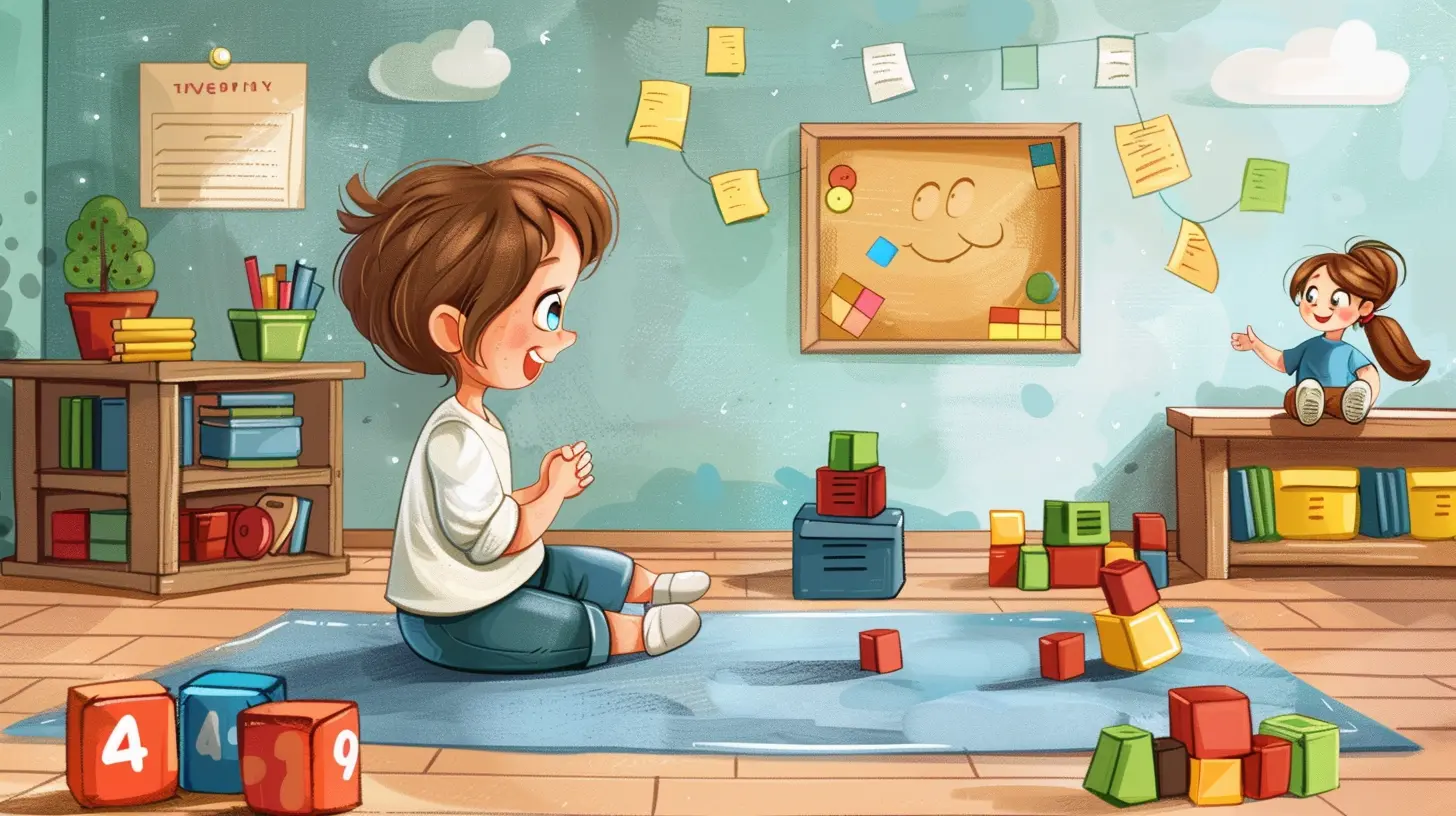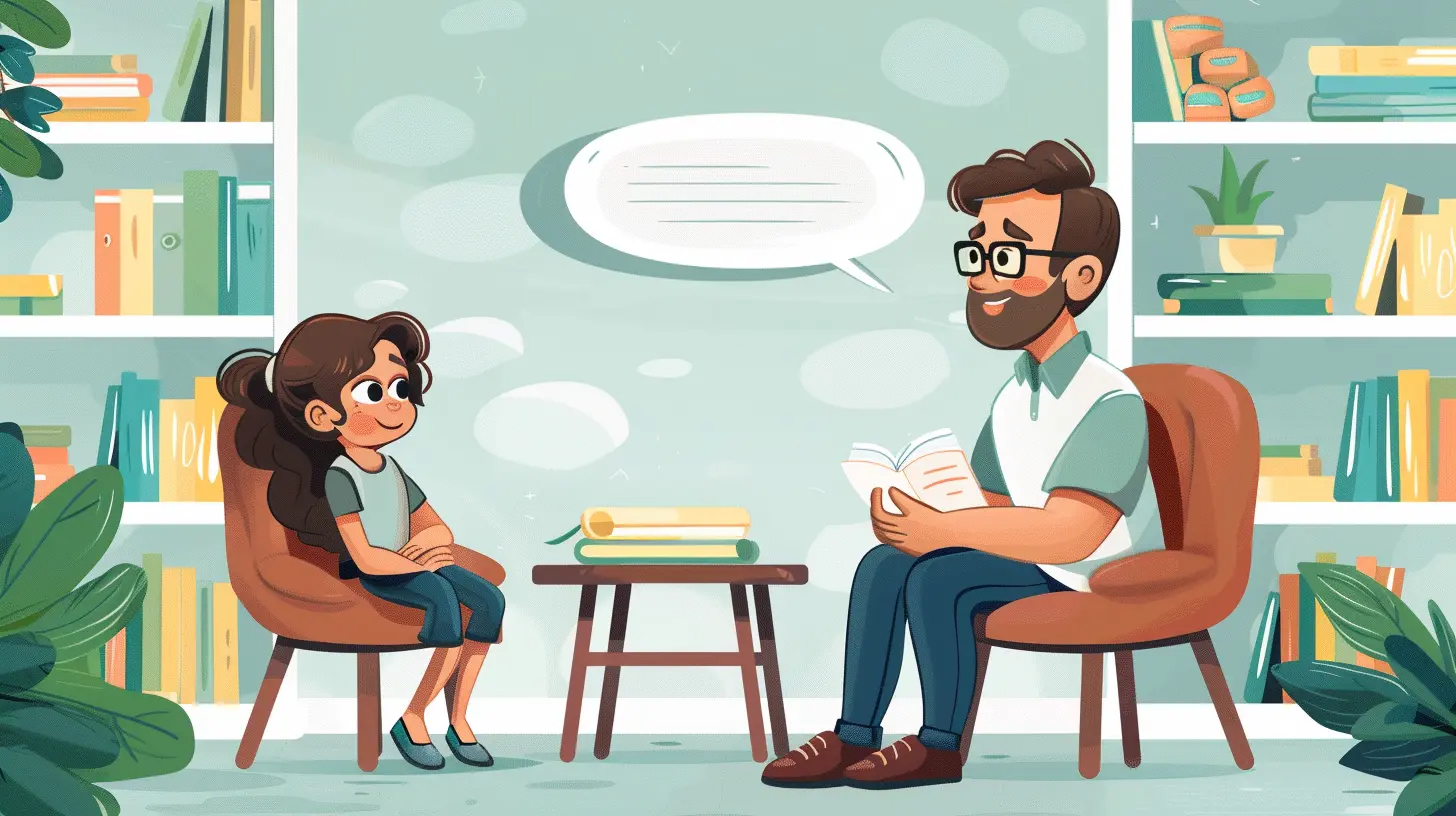Talking to Your Child’s Teacher: How to Build a Strong Partnership
3 July 2025
When it comes to parenting, one of your most valuable allies is your child’s teacher. Think about it—they spend hours every weekday with your little one, watching them learn, grow, and navigate the ups and downs of school life. Yet, many parents only chat with teachers during parent-teacher nights or when something goes wrong. That’s a missed opportunity!
Creating a strong, positive partnership with your child’s teacher can make a world of difference in their educational journey. Let’s break down how to make that partnership not just functional but powerful—and yes, even enjoyable!
Why Teamwork Between Parents and Teachers Matters
Let’s be real—raising kids is hard enough. Throw in homework struggles, school drama, or academic hiccups, and it’s easy to feel overwhelmed. That’s why having a solid connection with your child’s educator is so important. You're both on the same team, after all.A United Front Supports the Child
When parents and teachers are in sync, the child benefits the most. Just like how kids need consistency at home, they thrive when school and home are singing from the same sheet of music.Teachers can offer insights you may not see at home—social dynamics, learning patterns, or behavioral triggers. And you can share stuff from the homefront that impacts school, like family changes, health issues, or even sleep challenges. Together, you get the full picture.
Start with a Friendly Introduction
It sounds simple, but sometimes the first step is just saying hello.Don’t Wait for a Problem
Why wait until there's an issue before reaching out? Introduce yourself at the beginning of the school year. Whether it's in person, via email, or through a class app, a quick note letting them know who you are, that you're involved, and that you care can set the tone for open communication.Here’s a sample message you could send:
> “Hi Ms. Johnson! I’m Emily’s dad. We’re excited about third grade this year! Let me know if there’s anything I can do to support you or the class.”
Boom. You’ve opened the door.
Make Communication a Two-Way Street
Ever feel like you’re sending notes into a black hole? Or maybe you never reach out unless it’s about missing assignments? Let’s change that.Be Proactive, Not Reactive
Don’t let communication be crisis-driven. Check in periodically—even if it’s just to say thanks for something your child mentioned enjoying at school. These small, positive interactions build trust.Ask Specific Questions
Skip the generic “How’s my child doing?” and go for something more targeted, like:- “How is she participating in group activities?”
- “Does he seem engaged during math?”
- “Is there anything you'd recommend for reading at home?”
Specific questions invite specific answers—and show that you’re paying attention.
Respect Their Time (And Your Own)
Teachers are juggling a lot. So are you. Let’s respect that.Choose the Right Time and Method
Random drop-ins at dismissal might not be ideal for detailed chats. Use scheduled times—like parent conferences—or book a meeting. For small questions or updates, email or class communication tools are usually best.And hey, if a matter is urgent, say so. Otherwise, a little patience goes a long way.
Share the Good Stuff Too
Let’s face it—teachers often hear from parents only when something’s wrong. Flip the script. Share the wins, the smiles, and the silly stories from home that show your child is happy and learning.Positive Feedback Builds Relationships
Telling a teacher, “Liam came home excited about your science experiment today,” or “Thank you for encouraging Ava with her reading—it’s making a difference!” can go a long way. A compliment costs nothing, but it builds emotional savings.Be Honest, Even When It’s Tough
We all want to believe our kids are angels, but let’s be honest—sometimes they mess up. Being open about challenges at home sets the stage for real progress.Keep It Real
If there’s a change at home (a move, a divorce, an illness), let the teacher know. They’re not mind readers, and this kind of context helps them understand behavior shifts or learning dips.And guess what? Teachers appreciate honesty. It shows you're invested.
Collaborate on Solutions, Not Just Problems
If a problem does pop up, don’t go into the meeting like it’s a courtroom. Go in like it’s a strategy session.Stay Open-Minded
Maybe your child has been disruptive in class. Instead of getting defensive, say something like:> “That’s surprising to hear, but I appreciate you telling me. What do you think is going on, and how can we work on this together?”
This makes it a team effort, not a blame game.
Stay Engaged Throughout the Year
The back-to-school excitement is one thing—but keeping up the connection all year? That’s where the magic happens.Show Up (When You Can)
Yes, life is busy. But showing up—whether at a school event, volunteering for a field trip, or even just attending a zoom meeting—matters. It shows you're invested, even if it's just once in a while.Use Tech to Stay in the Loop
Most schools use some form of digital communication—Seesaw, Google Classroom, Remind, ClassDojo. Learn how to use them. Don't just scroll—engage! Drop a comment, send a note, give a thumbs-up. Small gestures, big impact.Deal with Conflict Gracefully
Sometimes, disagreements happen. Maybe you don’t agree with a grade, a disciplinary action, or how something was handled.Take a Breath Before Reacting
That email you want to fire off at 10 p.m.? Maybe don’t send that yet. Sleep on it. Then, reach out calmly and respectfully.Stick to the facts, ask for clarification, and seek common ground. Remember, it’s about your child—not about “winning” an argument.
Encourage Your Child to See Teachers as Allies
This part’s big. If your child hears you badmouthing their teacher, guess what? They’ll think it’s okay to tune out or disrespect them, too.Model Respect
Talk about the teacher positively at home. Use language like, “Let’s ask your teacher what she thinks,” or “That’s something I bet your teacher can help with.”When kids see you respecting the teacher, they’re more likely to do the same.
What Teachers Wish You Knew
Let’s peek behind the curtain for a second. Here are a few truths many teachers wish parents understood:- They genuinely care about your child.
- They’re not perfect, but they’re trying really hard.
- Communication is less about checking a box and more about building a bridge.
- Your input matters more than you think.
Quick Tips for Better Parent-Teacher Communication
Let’s wrap it up with a cheat sheet you can keep in your back pocket.- ✅ Introduce yourself early in the school year
- ✅ Communicate regularly, not just during issues
- ✅ Ask specific, thoughtful questions
- ✅ Express appreciation (genuine goes a long way)
- ✅ Be honest about struggles at home
- ✅ Use tech tools to stay engaged
- ✅ Address conflicts respectfully and calmly
- ✅ Show your child you respect their teacher’s role
Final Thoughts: Building a Bridge, Not a Wall
At the end of the day, you and your child’s teacher want the same thing—a happy, confident, successful kid. Building a strong partnership isn’t about checking a box or showing up twice a year. It’s about creating a bridge between two important parts of your child’s life: home and school.So reach out, stay connected, and remember—the stronger your partnership with their teacher, the stronger your child’s foundation becomes.
After all, raising a child isn’t a solo act. It’s a team performance. And with you and the teacher working in harmony, your kid gets a front-row seat to the best show in town—life, learning, and love.
all images in this post were generated using AI tools
Category:
Education TipsAuthor:

Liam Huffman
Discussion
rate this article
1 comments
Bridget Martin
Building a strong partnership with your child's teacher is a powerful step towards nurturing your child's education. Open communication fosters trust and collaboration, creating a supportive environment for learning. Remember, together you and the teacher can empower your child to reach their fullest potential!
July 7, 2025 at 4:00 AM

Liam Huffman
Absolutely! A strong partnership with your child's teacher is essential for fostering a supportive learning environment. Open communication truly empowers both parents and educators to help children thrive.


